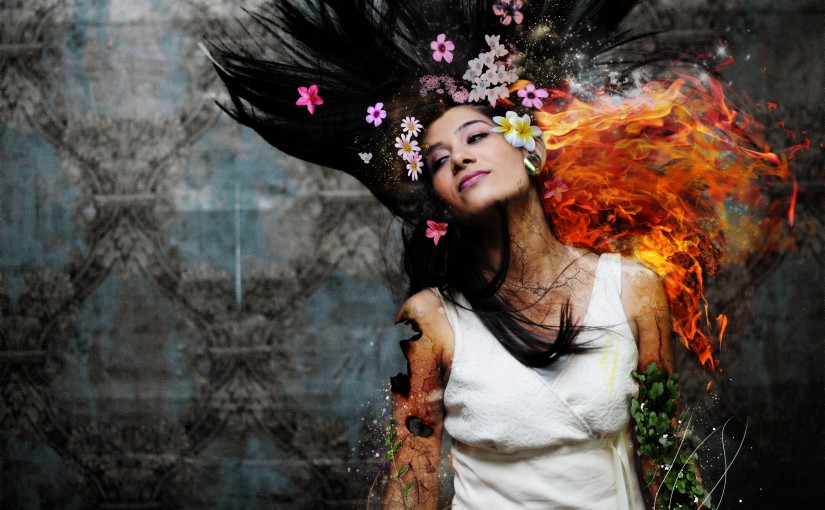کیا مجھ عشق نے ظالم کوں آب آہستہ آہستہ
کہ آتش گل کوں کرتی ہے گلاب آہستہ آہستہ
-ولی دکنی
Kiya mujh ishq ne zaalim kuN aab ahista aahista
ki aatish gul kuN karti hai gulaab ahista aahista
– Wali Dakhni
किया मुझ इश्क़ ने ज़ालिम कूँ आब आहिस्ता आहिस्ता
के आतिश गुल कूँ करती है गुलाब आहिस्ता आहिस्ता
-वली दक़नी
Meaning of:
Zaalim, ज़लिम, ظالم: ज़ुल्मी, आत्याचारी, Cruel
aab , आब, آب: पानी, Water
Aatish, आतिश, آتش: आग़, Fire
Gul, ग़ुल, گل: फूल, Flower
KuN, कूँ, کوں: को, to
Photo credit: Yashna M / Foter.com / CC BY
Wali Dakhni
Wali Muhammad Wali (1667–1707), also known as Wali Deccani, Wali Gujarati and Wali Aurangabadi was a classical Urdu poet from South Asia.
He is the first established poet to have composed Ghazals in Urdu language[1] and compiled a divan (a collection of ghazals where the entire alphabet is used at least once as the last letter to define the rhyme pattern).
Before Wali, South Asiaan Ghazal was being composed in Persian – almost being replicated in thought and style from the original Persian masters like Saa’di, Jami and Khaqani. Wali began using not only an Indian language, but Indian themes, idioms and imagery in his ghazals. It is said that his visit to Delhi in 1700, along with his divan of Urdu ghazals created a ripple in the literary circles of the north, inspiring them to produce stalwarts like Zauq, Sauda and Mir. Source: Wikipeida
